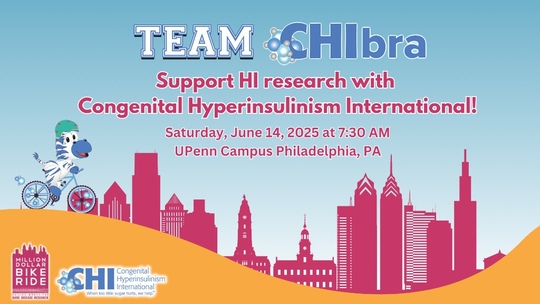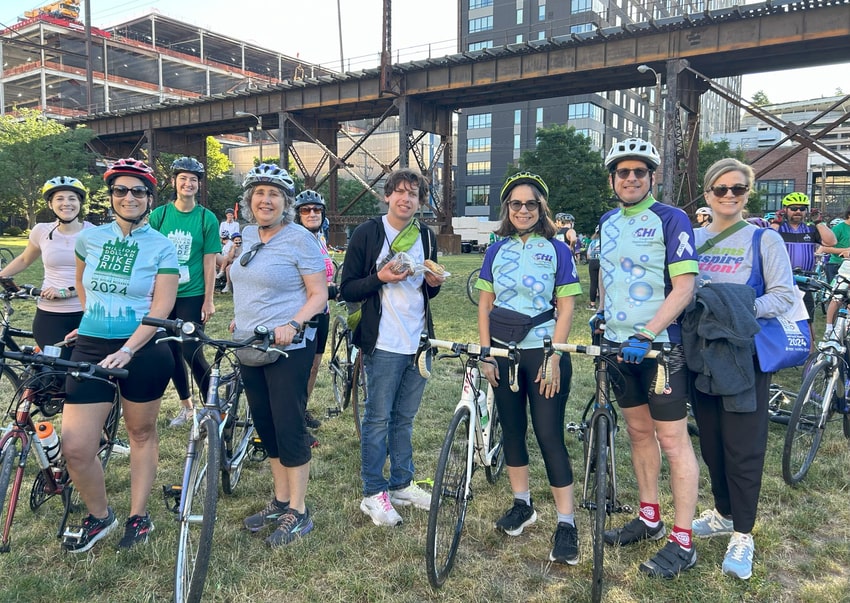
We hope you will join Team CHIbra on Saturday, June 14th at 7:30 in Philadelphia, PA to support hyperinsulinism research!
We understand the challenges of living with and managing hyperinsulinism (HI). It can be unpredictable, requiring constant vigilance, frequent blood sugar monitoring, and sometimes, strict dietary control, the need for continuous glucose monitoring, or even surgical removal of the pancreas and intravenous glucose infusions.
The relentless need for vigilance and care can be very costly, impacting the individual with HI and their caregivers. For children with HI, it can be especially tough, as parents must constantly monitor their child’s condition, often waking up multiple times during the night to check blood sugar levels and administer necessary treatments.
That’s why we’re dedicated to raising at least $70,000 for crucial HI research through the Million Dollar Bike Ride: for the development of better diagnostic tests for timely HI detection, improved management tools, new treatments, and ultimately, to find a cure. You can support HI research by donating here.
What is the Million Dollar Bike Ride?
The Million Dollar Bike Ride is a project of the Orphan Disease Center of the University of Pennsylvania and brings over 600 cyclists and volunteers to Penn’s campus to ride either 10, 32, or 72 miles starting in the city, and ranging across the Greater Philadelphia region. Unlike past years, the University will no longer match donations, making your support more important than ever! Every rider, volunteer, fundraiser, and donor makes a difference. Over the past 11 years, you have helped us raise over $846,000 for HI research! Can you help us get to $1 million for HI research?
How to Join:
In-person riders can register at the Million Dollar Bike Ride page under “Team CHIbra”
If you are not able to join us in Philadelphia, we’re inviting you to join the cause by creating your own family fundraising page for this year’s ride!

Take a look at past CHI MDBR grant winners to learn more about the MDBR grant’s positive impact on hyperinsulinism research.

